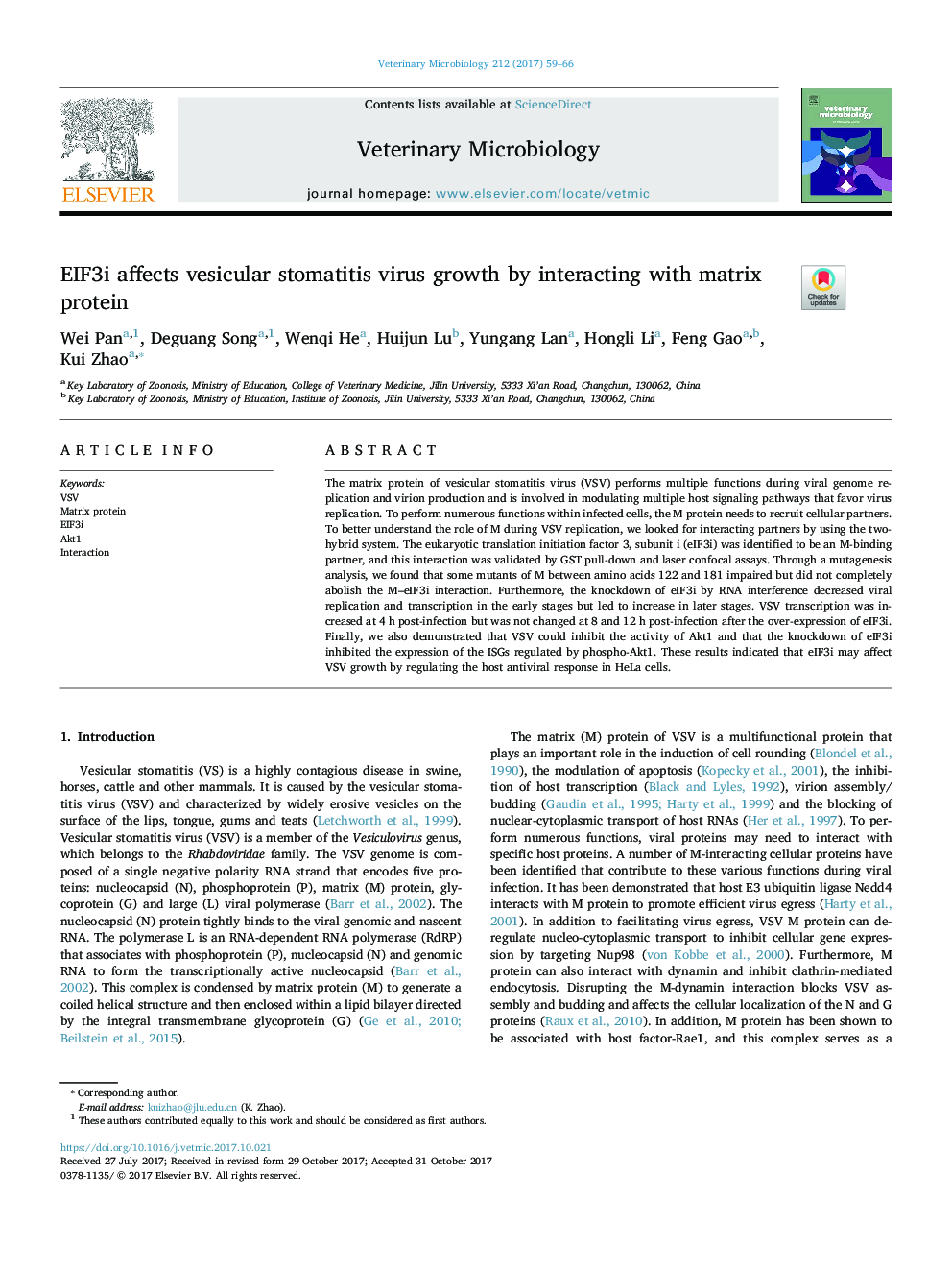| Article ID | Journal | Published Year | Pages | File Type |
|---|---|---|---|---|
| 8505703 | Veterinary Microbiology | 2017 | 8 Pages |
Abstract
The matrix protein of vesicular stomatitis virus (VSV) performs multiple functions during viral genome replication and virion production and is involved in modulating multiple host signaling pathways that favor virus replication. To perform numerous functions within infected cells, the M protein needs to recruit cellular partners. To better understand the role of M during VSV replication, we looked for interacting partners by using the two-hybrid system. The eukaryotic translation initiation factor 3, subunit i (eIF3i) was identified to be an M-binding partner, and this interaction was validated by GST pull-down and laser confocal assays. Through a mutagenesis analysis, we found that some mutants of M between amino acids 122 and 181 impaired but did not completely abolish the M-eIF3i interaction. Furthermore, the knockdown of eIF3i by RNA interference decreased viral replication and transcription in the early stages but led to increase in later stages. VSV transcription was increased at 4Â h post-infection but was not changed at 8 and 12Â h post-infection after the over-expression of eIF3i. Finally, we also demonstrated that VSV could inhibit the activity of Akt1 and that the knockdown of eIF3i inhibited the expression of the ISGs regulated by phospho-Akt1. These results indicated that eIF3i may affect VSV growth by regulating the host antiviral response in HeLa cells.
Keywords
Related Topics
Life Sciences
Agricultural and Biological Sciences
Animal Science and Zoology
Authors
Wei Pan, Deguang Song, Wenqi He, Huijun Lu, Yungang Lan, Hongli Li, Feng Gao, Kui Zhao,
